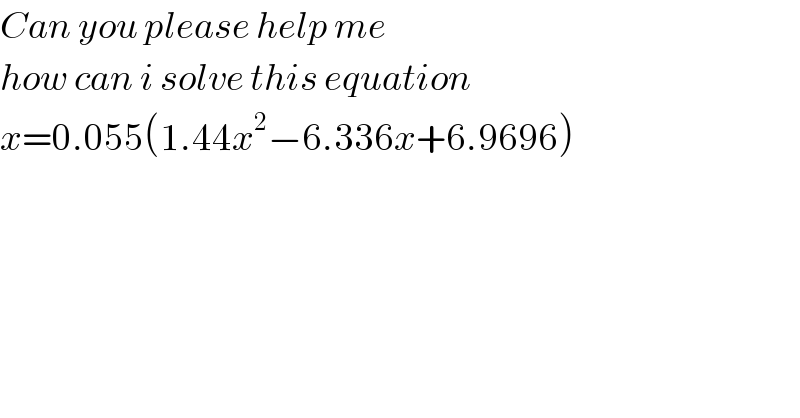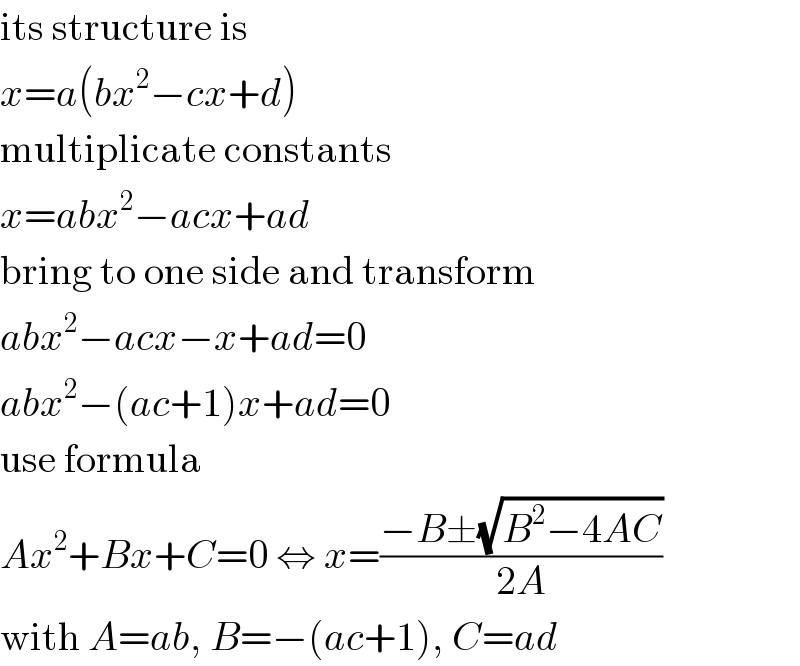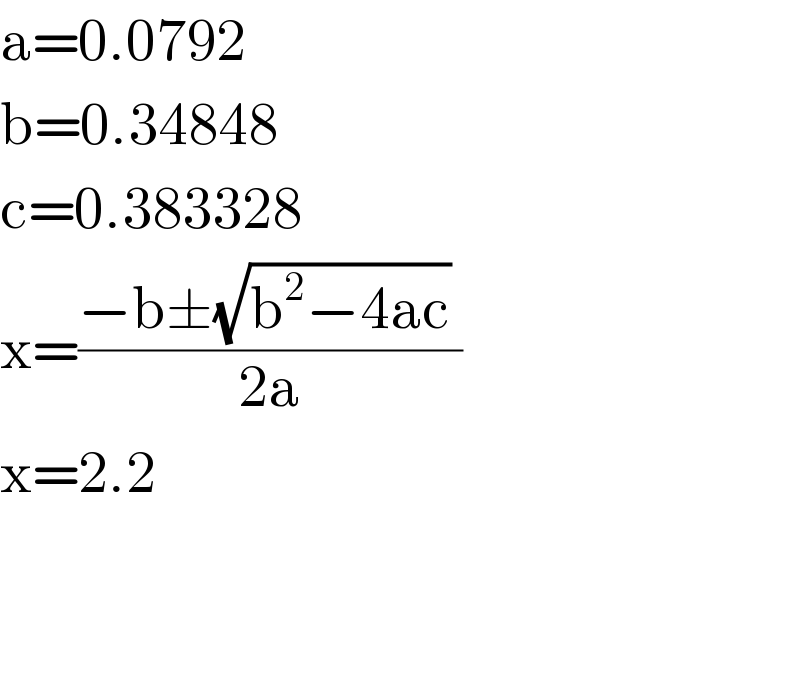
Question and Answers Forum
Question Number 50016 by gh.b last updated on 13/Dec/18

Answered by MJS last updated on 13/Dec/18

Answered by peter frank last updated on 13/Dec/18

| ||
Question and Answers Forum | ||
Question Number 50016 by gh.b last updated on 13/Dec/18 | ||
 | ||
Answered by MJS last updated on 13/Dec/18 | ||
 | ||
| ||
Answered by peter frank last updated on 13/Dec/18 | ||
 | ||
| ||